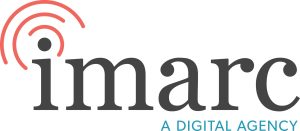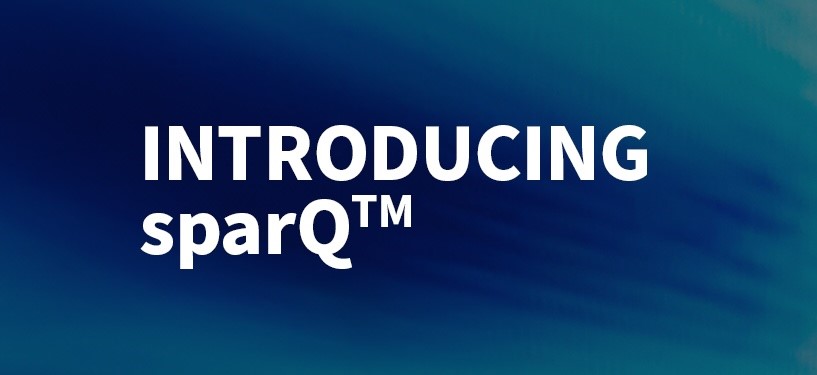Imarc is a full-service digital agency focused heavily on employee growth and the development of future leaders. Every day we encounter challenges in the technology space, and we meet them head-on.
This article presents some of the challenges we’ve faced alongside leadership solutions we’ve adopted.
Challenge: Technology is advancing at a breakneck pace. As it evolves and skill requirements increase, it’s imperative that we build our team members’ capabilities in tandem.
Solution: We solve for skill gaps through a candid and collaborative assessment process, providing professional development opportunities, mentoring, and continuous check-ins with all of our direct reports.
For example, people can receive company support to earn certifications in relevant practice areas, and attend in-person or online conferences. Mentorship is a big part of our professional development approach, and we frequently pair teammates to collaborate on interesting projects, level up skills, and more.
We foster a culture of continuous growth and professional development for EVERYONE on our team. Their success is our success!
Challenge: Leading remotely is a skill new to this time period, and it isn’t going away. It requires us to build a completely different toolbox in service of leadership, productivity, and effective collaboration.
Solution: Before the pandemic, Imarc functioned much like other digital agencies; most people worked in person at our funky, cool office with themed meeting rooms and nitro cold brew on draft. However, when the team went fully remote during COVID, we realized that we had the opportunity to bring in top talent from anywhere, as long as we could master their onboarding and integration with the team. Now, that’s our standard:
- Some of our team members come in daily to the office, others are hybrid, and more than half are fully remote. This inclusive practice has allowed us to pull together a team of the best of the best. Imarcians live in 15 different US states, and counting.
- We fly everyone in for team-building and training events and celebrations. Our top priorities for our workforce are talent, effective communication skills, and a strong work ethic, not geography.
- We foster collaboration and productivity by providing spaces for people to discuss concerns within the workplace and their lives. One such opportunity is the Women in the Workplace (WITW) group. WITW was initially created to give women at Imarc a platform to discuss problems that were unique to female-identifying employees. We invite all Imarcians to participate and share their perspectives.
- We have a monthly Digital Discoveries session where we look outside the company and discuss workplace trends, technology, and best practices. For those sessions we use Google Meet breakouts and other collaboration features to ensure a great participation experience for both onsite and remote attendees.
- We have unrestricted social channels on the company Slack space, where people with shared interests can connect and chat, in virtual spaces.
Challenge: Analysis paralysis is real. There’s a lot of information out there and it can be overwhelming. Between social media, digital communications, and all the other constant “noise,” it’s vital that leaders are able to stay focused, steady, and ready.
Solution: Imarc leaders make space for strategy and free ideation, and take appropriate and thoughtful action, even when things feel chaotic. They do this by:
- Communicating strategically – The law of timing, as referenced in 21 Laws of Leadership says, “Only the right action at the right time will bring success.” Think through your communications from all perspectives and consider your timing. This is especially important when rolling out something new.
- Charting courses – The Law of Navigation, also from 21 Laws of Leadership states, “Anyone can steer the ship, but it takes a leader to chart the course.” As a leader, it’s your responsibility to draft intentional plans and be ready to respond quickly to protect your team.
- Not fearing failure – You will fail personally and in front of your team, and that is ok. True failure is when you do not learn from your failures. A good leader will recognize their mistake and try again.
- Listening – A good rule of thumb is to listen 90%, talk 5%, and do 5%. Any idea is a good idea when we’re ideating and problem-solving. Open-ended questions can help you obtain new information that might change your perspective on a problem.
- Having tough conversations – If you shy away from tough conversations and criticism, you will fail to identify problems and develop solutions. Open and respectful dialog and discussion are key to addressing problems effectively.
Challenge: Keeping teams close and working together is a challenge especially when technology advances so quickly and members are remote. It’s critical that you effectively integrate team members and build and maintain the productive workplace bonds that foster successful collaboration.
Solution: Imarc makes space for unstructured conversation and collaboration through online chat, the use of shorter meetings, stand-ups, and a culture of openness to others’ thinking. Trust and teamwork are enhanced when we appreciate and respect each other. Some of the ways we do that include:
- Thanking people – Saying “thank you,” goes further and means more than you might think. Recognition of their contributions means a lot to your team, and that can come from a peer or a person in leadership. We give thanks to each other in all directions.
- Staying calm – Remaining calm can make all the difference in a tough moment. Calm is contagious, and your team is less likely to panic if they see you staying calm and in control, and communicating thoughtfully and clearly.
- Remaining positive – There is infinite power in positivity. While it can sometimes be challenging to stay in a positive headspace, it sets the tone for your team and enhances collaboration.
- Being vulnerable – It’s ok to allow others to see your imperfections. Sharing problems allows others to be part of the solution, and enhances trust. If you are open to help when you’re struggling, the solution will be more easily found.
- Offering more – It’s important to put more on the table than you take. Pick up the slack for a teammate that is buried, or go get them lunch, or just lend an ear. Peer-to-peer mentoring is priceless for building skills and confidence as people stretch to take on new challenges.
- Being ready – If you ask “How can I help?” be prepared to do whatever is asked of you. If you need help, ask specifically for what you need. Good people really want to help – let them!
Challenge: The rapid rise of generative AI has created real concerns about the credibility and authenticity of the content it creates, giving rise to resistance in the workplace to adopting these new tools. Addressing ethical concerns and creating sound policy and practice for the use of AI is important for leaders of today.
Solution: We assembled a select task force, including stakeholders from all of our practice areas to explore opportunities (and risks!) for the use of AI, and to identify areas where careful policy and oversight would be needed. We also welcome dialog on the subject of the proper and ethical use of AI in a dedicated Slack channel. The result of this study was the creation of an “AI Playbook” with guidelines, resources, use cases and other tools to guide and govern the use of AI in our workplace.
These are challenging times in business, and as leaders we’re constantly faced with the need to adapt, improvise, and create new solutions that empower our teams and drive our businesses forward.
We hope some of these ideas might open you up to rethinking your own workplace, or your own use of new technology. If so, we’d love to hear about that. Digital transformation is what we’re all about, and if that’s what you’re interested in right now, let’s talk.




